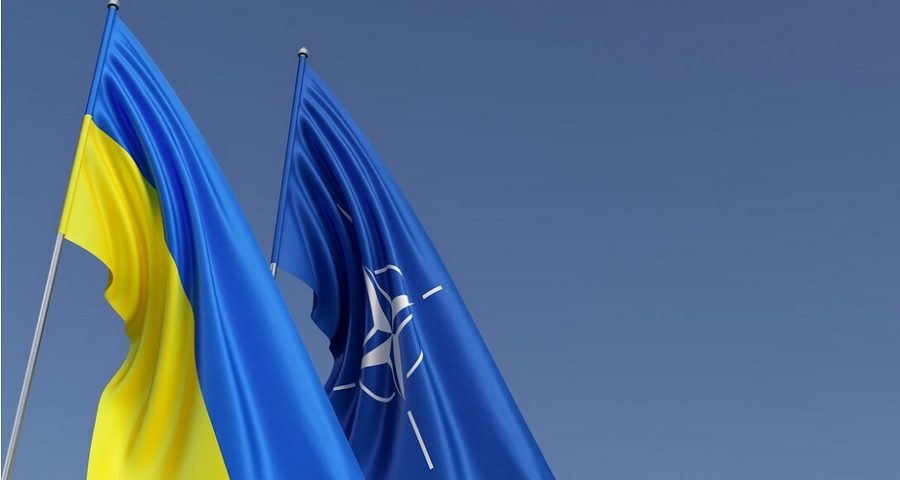Doing business

NATO most strongly condemns Russia’s brutal and unprovoked war of invasion against Ukraine, an independent, peaceful and democratic country, a close partner of the Alliance. NATO member states continue to assist Ukraine at an unprecedented level to guarantee its fundamental right to self-defense.
The Alliance began actively supporting Ukraine after 2014 through trust funds. At the 2016 summit, they approved a comprehensive assistance package for our state for the first time. After Russia launched a large-scale war against Ukraine on February 24, NATO stepped up this assistance. Since then, the Alliance has provided Kyiv with fuel, first-aid kits and medicines, personal protective equipment against chemical, biological and radioactive threats, as well as secure communications equipment, bulletproof vests, demining devices and hundreds of man-portable anti-drone systems. NATO countries have provided about €8 billion in military support to Ukraine since the Russian invasion.
NATO’s military support for Ukraine has increased since the beginning of the war against Russia. After February 24, €22 million has already been allocated for aid to Ukraine – assistance for this amount has already been delivered. Another 40 million euros have already been approved, now it is a matter of its transferring.
Currently, a new assistance package for another €330 million is being prepared. The new comprehensive assistance package in NATO is also seen as a “clear and obvious” signal that the Alliance’s partnership with Ukraine is important and long-lasting. It includes both short- and long-term support.
The need for the long-term part of the assistance is caused by the fact that both Ukraine and the Alliance countries have fewer and fewer Soviet-style weapons as the war is progressing. And with new deliveries, the Armed Forces of Ukraine have more and more weapons of NATO standards. So in the long term NATO will help Kyiv to finally complete the transition to new weapons. To this end, the Alliance, together with the Ukrainian authorities, is developing a roadmap for achieving interoperability between the AFU and the armies of NATO countries.
Ukraine has become an associate member of the Multilateral Interoperability Program (MIP), which provides technological cooperation between NATO member armies. MIP membership means that Ukraine received the right to jointly develop and implement changes to key NATO standards related to the interoperability of command and control systems and related standards. With support from the Ukraine-NATO Trust Fund and the MIP program, Ukraine’s Delta situational awareness system, which has been developed by Ukrainian military IT specialists since 2016, was improved. MIP and Ukrainian developers of the Delta system have been working together since 2019.
On the sidelines of the Madrid summit, NATO announced a new program for rapid response to cyber attacks. The Alliance simultaneously pledged to strengthen Ukraine’s cyber defenses in the face of relentless Russian attacks, which systematically attack Ukraine’s energy sector, banking system and other facilities critical to its economy.
Going forward, in the area of cyber security, NATO will focus on developing Ukraine’s capabilities, providing the necessary equipment and training, so that Ukraine can protect its infrastructure from modern cyber attacks.
At the same time, an important direction should be the joint counteraction and termination of persons residing in the territory of NATO member states who support the hybrid aggression of the Russian Federation in the cybersphere.
Ukraine is also expected to join the NATO Cooperative Cyber Defence Centre of Excellence as a permanent member in the near future.
NATO members are working closely with defense industry companies to provide Ukraine with more weapons and equipment in preparation for a long war with Russia.
Germany, together with Denmark and Norway, will finance the production and delivery of Slovak 155 mm Zuzana 2 wheeled self-propelled artillery installations for the Armed Forces of Ukraine. The value of the contract is €93 million..
On September 30, according to the results of the meeting of the National Security and Defense Council, Ukraine submitted an application for accelerated accession to NATO.
The presidents of nine NATO member countries from Central and Eastern Europe have already supported Ukraine’s membership in the Alliance and called for increased aid.
“We support Ukraine in its defense against Russian invasion, demand that Russia immediately withdraw from all occupied territories, and encourage all members of the Alliance to substantially increase military aid to Ukraine. All those committing crimes of aggression must be brought to justice,” the nine presidents said.
The document was signed by the presidents of the Czech Republic, Estonia, Latvia, Lithuania, Northern Macedonia, Montenegro, Poland, Romania and Slovakia.
“Just in the last few days we have seen progress both to the south in Kherson region and to the east in Kharkiv region. This demonstrates the courage, skill and determination of Ukrainian forces. It also demonstrates that our assistance is making a difference on the battlefield every day,” NATO Secretary General Jens Stoltenberg said and noted that NATO is sending a strong and unified response to Russia’s brutal war in Ukraine: “This includes unprecedented military, financial and humanitarian support from the Alliance so that Ukraine can realize its right to defend itself”.
NATO member countries remain the main trade and investment partners of the region and Ukraine. They accounted for 42% of the region’s foreign trade turnover – $7.558 million. More than 700 companies with foreign investments from the countries of the Alliance operate in the region, which invested $6,841.6 million in the region’s economy (93.8% of the total volume of direct foreign investments in the region).